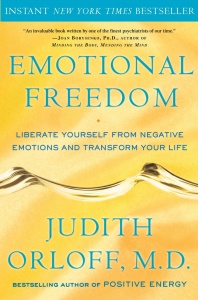Are you an empath? Take the test here to determine your empath score.

In my practice as a psychiatrist and in my personal life, I’ve known many people whom I call “emotional gushers.” Gushers are experts at knowing their emotions and were born to share them. No one has to wonder where they’re at. Elated, bored, miserable, they tell you. What you see is what you get. They tend to be spontaneous, direct, authentic and trusted confidants. The gusher unloads stress by verbalizing it.
I, for one, know how freeing this can be. I am grateful to my treasured circle of friends, who deserve trophies for listening to my fears, hopes and quandaries over the years. However, some gushers get antsy when there’s no one to tell. Also, they may resist making independent decisions, trusting their intuition or staying emotionally grounded without external input. I have a patient who’s an aide in a convalescent home, a true friend to the elderly. Though he finds helping others gratifying, the setting can be arduous: understaffing and budget cuts compromise the care he gives to the dementia-afflicted or physically disabled, a brutal neglect he had difficulty stomaching. Each night, he depended on being able to vent his stress to his wife and could work himself into tremendous anxiety if she wasn’t around. My patient didn’t know how else to calm down and release stress until I taught him the techniques in this article. In addition to healthily venting, he learned to tap the power within to find inner peace.
In my book “Emotional Freedom” I describe the gusher as well as three other common emotional types, which include the Intellectual, the Empath and the Rock. It’s important to know which type you are to be empowered emotionally. To determine if you’re a gusher, take the following quiz.
Quiz: Am I A Gusher?
Ask yourself:
If you answer “yes” to one to three of these questions, you possess some gusher tendencies. Responding “yes” to more than three suggests that this is your emotional type.
Recognizing that you’re a gusher enables you to become a better communicator by learning to balance self-sufficiency with emotional expression. Sometimes gushers are so hungry to share that they turn people off. At a party, in the market, they’re all over you, compulsive emotional purgers. (The joke goes that such motormouths qualify for the Twelve-Step Program On-and-on-and-on-and-on!) Although it’s liberating to voice feelings, a gusher must strike a balance between healthily emoting and drawing on the wisdom within. Consider the following profile summarizing a gusher’s traits.
The Gusher’s Upside
The Gusher’s Downside.
Emotional Action Step: Tips For Gushers To Find Balance
Empower yourself with self-sufficiency. Experiment with centering your feelings before soliciting support. Here’s how: First define the upset. Let’s say your boss has made mince meat out of your self-worth yet again. Second, ask yourself, “How does this make me feel? Seething? Demoralized? Plotting murder?” Now let yourself experience those emotions uncut, not acting them out, an essential stage before transformation can happen. Third, work with your feelings using these techniques:
As a gusher, if you skip these steps and go straight to the phone, you’ll cheat yourself out of the opportunity to build the emotional muscles necessary for more freedom and autonomy. Knowledge is power. The most important relationship you’ll ever have is with yourself. If this is good, you’ll be capable of gratifying relationships with others.
Adapted from Dr. Judith Orloff’s NY Times bestseller “Emotional Freedom: Liberate Yourself From Negative Emotions and Transform Your Life” (Three Rivers Press, 2011)




